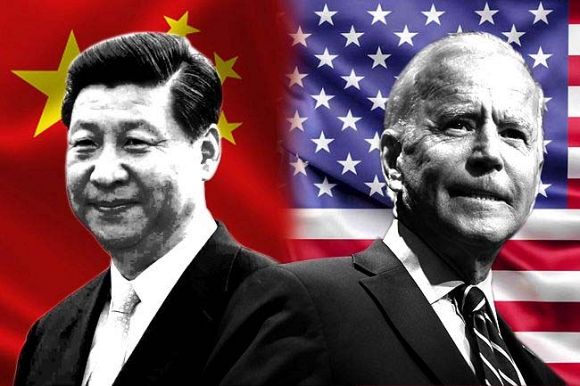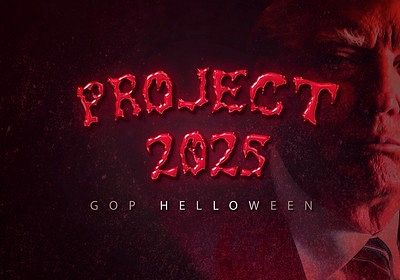Under the new Trump Administration, each Pacific nation will have to compete for American interest and funding based on trade, defence and combatting China, writes Patrick Drennan.
AFTER DECADES of apparent indifference, the U.S. is playing catch-up in the Pacific. The Biden Administration opened new embassies in the region, including in the Solomon Islands, and renewed Compacts of Free Association with the Federated States of Micronesia, the Marshall Islands and Palau. They also signed defence agreements with New Guinea, the Mariana Islands and Vanuatu.
However, Trump and his America-first nationalists have a fundamental bias against conventional agreements between the U.S. and other nations that do not directly benefit America. They will focus on trade, defence and combatting China. Each Pacific nation will have to compete for American interest and funding based on these criteria.
Trade
The U.S. has a preferential agreement with Fiji and a (limited) free trade agreement with Australia. Twenty per cent of Fiji’s exports go to the USA, but they import far less, resulting in a trade surplus for Fiji. Australia’s trade deficit with America was about $27 billion in 2023. New Zealand's deficit was about $1.4 billion in the March 2024 quarter.
New Zealand exports dairy, beef, raw wood and wine – products that challenge U.S. producers – the main reason there is no free-trade agreement now, nor likely to be in the near future.
America is unlikely to place tariffs on existing imports from the South Pacific if the U.S. maintains a trade surplus overall. However, by increasingly resisting imports from these countries, they will force them to look for other markets, particularly China. Having an America-centric outlook often ignores that fact.
Defence
Australia spends 2.2% of GDP on defence. On the other hand, New Zealand spends about 1.5% (and declining) and has a nuclear-free policy — both likely to upset the incoming President.
Fiji spends about 1.4% on defence and other poor Pacific nations spend next to nothing. Australia and New Zealand are trying to plug the gaps, but it requires major power economic involvement. This naturally means those with long-term presences in the region like America and France, who both control territories in the region and have permanent military bases. To date, the French Polynesians are happy to cooperate but remain wary of Donald Trump’s commitment.
Trump is well known for his dislike of U.S. alliances, in particular NATO. But, although often erroneously described as an “alliance”, AUKUS is not a collective defence treaty but rather a technological security tri-partnership.
Australia invested $4.62 billion into both the UK and U.S. submarine industrial bases. This brings a twofold outcome. The funding will lift U.S. defence industrial capacity (the U.S. is itself contributing $33.1 billion) and it will combat China in the region.
It helps that loyal Trump supporters who have questioned AUKUS, including former Deputy Assistant Secretary of Defence Elbridge Colby and Heritage Foundation researcher Alex Velez-Green are both China hawks.
However, cost overruns will likely see this ambitious trilateral program scaled back by the Trump Administration. Legislative proposals, especially those requiring funding, may face significant difficulties in passing either chamber of Congress unless tied to China-related priorities.
The focus on trade and defence, and countering Chinese political influence, are important to Pacific nations but to most of them, American help is needed on the ground in practical ways.
The most practical assistance the U.S. can provide to the Pacific islands is to build sea walls, stop illegal fishing and fight the increasing drug trade.
South American illegal drug producers have been eying up Australia’s market and using the Pacific as a new drug route and user destination. Recently, the Columbian navy intercepted submersibles packed with 225 tonnes of cocaine crossing the Pacific. South Pacific islands Hawaii, Fiji, Tonga, Samoa and Tahiti have been awash with illegal drugs, infecting not just the cities but all levels of society.
The incoming Trump Administration must be encouraged to continue to fund and support the U.S. Coast Guard to conduct operations with others in the Pacific Islands. The islands need specialised drug forces and detection equipment. Church-based rehabilitation programs on the ground, which most Americans are familiar with, would be invaluable.
Sea walls to protect Pacific nations, including New Zealand and Australia, being eroded by rising seas are essential. Just don’t mention climate change as this has been often scorned by President Trump and his allies. Yet is it very real — Tuvalu, a small country in the Pacific Ocean made up of nine coral islands, is disappearing into the sea.
Sea levels around Hilo Bay in Hawaii have risen ten inches since 1950 and are now rising at a rate of about one inch every four years. Sea walls and reclamation projects are expensive and difficult. It is hard to see a transactional Trump Administration readily funding them.
Fishing is extremely important for Pacific economies. China’s distant water fleets in the Pacific fish in areas that are productive for squid fishing, trawling and long-lining. Chinese fishing vessels have been accused of turning off their automatic identification systems and fishing in other nations’ economic zones without consent. Additionally, there is an indication that China intends to use these vessels as fishing militias, as it has done in Northeast and Southeast Asia.
The Pacific Quad (Australia, France, New Zealand and the United States) needs to coordinate efforts, in conjunction with Pacific islanders, on expanding capacity and forces to counter illegal, unregulated and unreported fishing and training programs that support local enforcement and surveillance capabilities. This direct challenge to Chinese interests should appeal to the Trump Administration.
China’s influence in the Pacific Islands region is expanding. Since July 2024, China has hosted leaders from Fiji, the Solomon Islands and Vanuatu. After hosting then–Prime Minister Manasseh Sogavare in 2023, China and the Solomon Islands signed nine agreements, including a new policy cooperation deal that supports a comprehensive strategic partnership and resulted in a large contingent of Chinese police on the main island of Guadalcanal.
Face-to-face meetings are very important in Pacific societies. Since 2020, Chinese leader Xi Jinping has on multiple occasions, often in one-on-one formats, met with heads of state of Fiji, the Federated States of Melanesia, Kiribati, Solomon Islands and Vanuatu.
Everything for Donald Trump is transactional and personal. Trump is likely to visit Australia but also needs to send Vice President JD Vance and nominated Secretary of State Marco Rubio to the Pacific region as well.
Craftily former Japanese leader Abe Shinzo used golf diplomacy to establish a rapport with Trump. Neither Australian Prime Minister Anthony Albanese nor New Zealand Prime Minister Chris Luxon play golf. However, both Australian Defense Minister Richard Marles and Fijian Prime Minister Sitiveni Rabuka are very good golfers. They might want to soft-pedal their game if they play a few rounds with Trump. The stakes are high.
Patrick Drennan is a journalist based in New Zealand, with a degree in American history and economics.
 This work is licensed under a Creative Commons Attribution-NonCommercial-NoDerivs 3.0 Australia License
This work is licensed under a Creative Commons Attribution-NonCommercial-NoDerivs 3.0 Australia License
Support independent journalism Subscribe to IA.

Related Articles
- CARTOONS: Trump's tariff talk is taking its toll
- Dutton mimics Trump's tricks
- Trump turns the American dream into a nightmare
- Trump’s tariff wrecking ball about to hit the global economy
- No coming back from Trump














